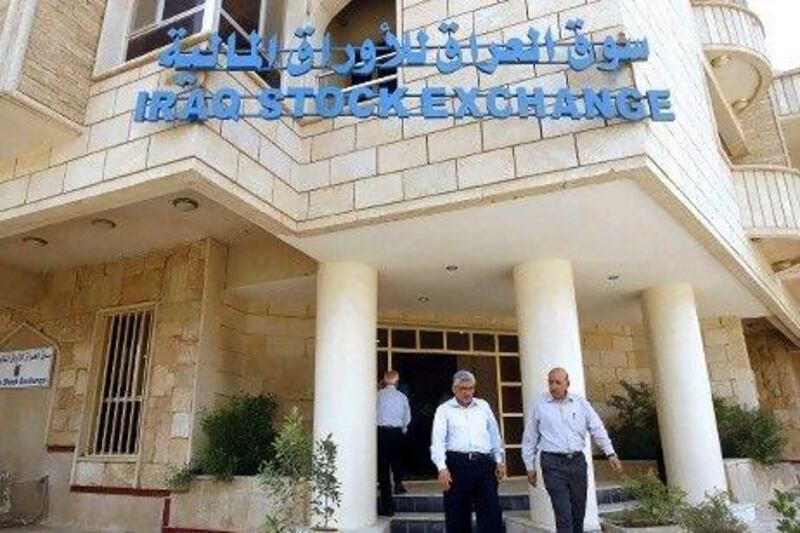Iraq will set up a second stock market in the autonomous region of Kurdistan, with plans to list companies in the next six months as foreign investors rush into Erbil for its favourable security and economic climate.
"Kurdistan is a launch pad for the wider Iraq," said Abdullah Ahmad Abdulrahem, the chairman of the Erbil Stock Exchange. "Our exchange would compliment Baghdad's ISX [Iraq Stock Exchange]. We are also considering cross-listings from there.
"We have some interesting companies here and we have the security. The project has been under consideration for almost four years but we only recently received the necessary approvals from various government institutions," said Mr Abdulrahem.
The Erbil Stock Exchange, along with Baghdad's ISX, will be regulated by the Iraq Securities and Exchange Commission.
The exchange was identifying potential private joint-stock companies that have operated for more than a year with profits and that could be candidates for listing, Mr Abdulrahem said.
Kurdistan's autonomous region has attracted more than US$16.2 billion (Dh59.5bn) in foreign investment over the past five years, for its favourable investment climate, according to the regional government's website.
Two weeks ago, the Dubai Financial Market agreed to offer technical assistance to the Erbil bourse.
"I have received many calls in the past from people that are interested in investing in Erbil," said Essa Kazim, the chief executive of the DFM.
"They have a good foreign investment and a pipeline of companies.
"They need a stock exchange. These foreign investors at some point would need a market value to exit their investments, and one of the key exit strategies is through the public market."
There were 125 private joint-stock companies in Iraq, of which 85 were listed companies, said Taha Abdulsalam, the chief executive of the ISX. That should grow as more companies embraced basics of corporate governance and financial reporting.
Mr Abdulsalam said the launch of a new bourse in the Kurdish region would help to bring more investors from the Kurdish region to trade in Iraqi stocks.
"The bourse will have separate finances and management," he said. "But they will have a licence to trade Iraqi stocks. It's better than opening a separate branch. Plus, the Kurds want a stock exchange themselves."





